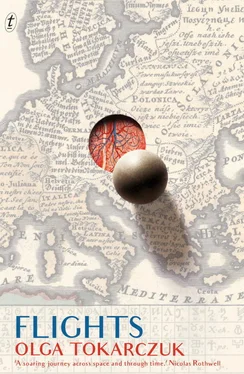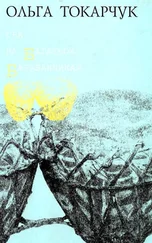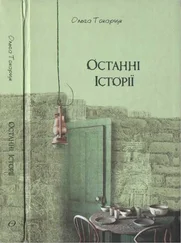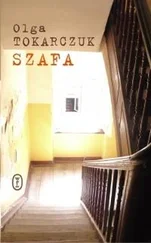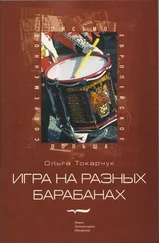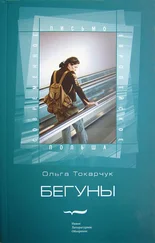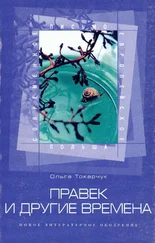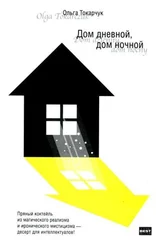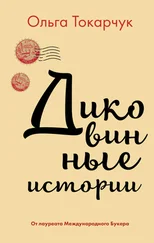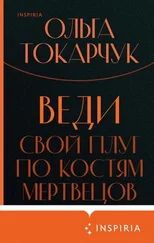So that anyone who confronts me head-on can still catch me.
But, by Zeus, why is the back of your head bald?
So that no one I’ve run over with my winged feet,
Might seize me from behind, for much as he desired to do so.
Why did the sculptor create you?
On account of you, foreigners, and he set me at the entrance as a lesson.
He began with this lovely epigram by Posidippus – he ought to have used it as an epitaph. The professor went up to the first seats and handed the proof of the god’s existence over to his audience. The girl with the swollen, contemptuous lips reached out for the relief with exaggerated caution, sticking out her tongue slightly from the exertion. She passed it on, while the professor waited in silence, until the small god had made it halfway around the room, and then, with a stony expression on his face, he said:
‘Please don’t worry, it’s a plaster cast from a museum gift shop. Fifteen euros.’
Karen heard a murmur of laughter, the shifting of the listeners’ bodies, the scraping of someone’s chair – a clear sign that the tension had been broken. He’d started well. He must be having a good day today.
She quietly slipped out onto the deck and lit a cigarette, looking at the island of Rhodes as it got nearer, and the big ferries, the beaches still mostly empty at this time of year, and the city, which like some colony of insects climbed up the steep slope towards the bright sun. She stood there, enveloped in a peace that suddenly flowered over her, who knew from where.
She saw the island’s shores, and its caves. Cloisters and the naves carved into the rock by the water brought strange temples to her mind. Something had carefully built them over millions of years, that same force that now bore their small ship, rocked them. A thick transparent power, that had its workshops on land, as well.
Here were the prototypes of cathedrals, the slender towers and the catacombs, thought Karen. Those evenly stacked layers of rock on the shore, perfectly rounded stones, carefully elaborated over the ages, and grains of sand, and the ovals of caves. The veins of granite in sandstone, their asymmetrical, intriguing pattern, the regular line of the island’s shore, the shades of sand on the beaches. Monumental buildings and fine jewellery. What, in the face of this, could those little strings of houses lining the shores ever hope to be? Those little ports, those little ships, those little human shops, where with excessive confidence old ideas – simplified and in miniature – were sold.
Now she recalled the water grotto they’d seen somewhere on the Adriatic. Poseidon’s Grotto, where once a day the sun burst through an opening in the top. She remembered she herself had been next to the column of light as it pierced – sharp as a needle – the green water, and for just an instant revealed the sandy bed below. It lasted just a moment before the sun continued on its way.
The cigarette disappeared with a hiss into the great mouth of the sea.
He was sleeping on his side, with a hand under his cheek, his lips parted. His trouser leg had rolled up and now showed his grey cotton sock. She lay down beside him gently, put her arm around his waist and kissed his back in its woollen vest. It occurred to her that after he was gone she’d have to stay a little longer, even just to tidy all their things up and make room for others. She’d gather all his notes, go through them, probably publish them. She’d arrange things with the publishers – several of his books had already been made into textbooks. And in reality there was no reason not to continue his lectures, although she wasn’t sure the university would invite her to do so. But she would definitely want to take over these mobile Poseidon-like seminars on this meandering ship (if they asked her). Then she’d be able to add a lot of her own things. She thought about how no one had taught us to grow old, how we didn’t know what it would be like. When we were young we thought of old age as an ailment that affected only other people. While we, for reasons never entirely clear, would remain young. We treated the old as though they were responsible for their condition somehow, as though they’d done something to earn it, like some types of diabetes or arteriosclerosis. And yet this was an ailment that affected the absolute most innocent. And, her eyes closed now, she thought of something else: the fact that her back remained uncovered. Who would hold her?
In the morning the sea was so calm, the weather so pretty, that everyone went out onto the deck. Someone was insisting that with such great weather they ought to be able to see in the distance the Turkish coast of Mount Ararat. But all they saw was a high rocky shore. From the sea the massif looked so powerful, dappled with bright splotches of bare rock resembling bones. The professor stood hunched over with his neck wrapped up in her red scarf, squinting. An image came to Karen’s mind: they were sailing underwater, because in reality the water level was high, like in times of flood; they were moving in an illuminated greenish space that slowed their motion and drowned out their words. Her scarf no longer flapped obnoxiously, but rippled, silent, and her husband’s dark eyes looked at her so softly, gently, rinsed by omnipresent salty tears. Glistening even more was Ole’s red-gold hair, his whole body like a drop of resin in the water that would harden into amber soon. And high above their heads someone’s hands were just releasing a bird to scout out the mainland, and soon they’d realize it was known where we were sailing, and just then that same hand was pointing out a mountaintop, a safe spot for a new beginning.
In that same moment she heard screams from up ahead, and instantly a hysterical whistle of warning, and the captain, who’d just been standing nearby, now ran towards the bridge, which, since it was such a violent departure from his usual decorum, frightened Karen. The passengers all started screaming and waving their hands; those leaning against the railings were no longer aiming their wide eyes at the mythical Ararat, but at something down below. Karen felt the ship brake sharply, the deck shifting and shuddering beneath their feet, and at the last possible moment she seized the metal of the railing and quickly tried to catch her husband’s hand, but she saw the professor pawing his way backwards, taking tiny steps, like she was watching a movie playing in reverse. On his face amusement arising from surprise, but not fear. His eyes said something like: ‘Catch me.’ Then she saw him hit his back and head on the iron scaffolding of the stairs, saw him bounce off of them and fall onto his knees. In the same instant from up ahead she heard the bang of a collision and people’s shouting, and then the splash of life buoys and the powerful impact in the water of a life boat, because – as Karen was able to put together from other people’s shouts – they’d rammed into some little yacht.
Around her people were rising from the deck, nobody else injured, and she was kneeling down beside her husband gently trying to revive him. He was blinking, blinks that were too long, and then he said quite audibly: ‘Pick me up!’ But that couldn’t be done now, his body refused to obey, so Karen lay his head on her lap and waited for help to arrive.
The professor’s well-selected health insurance meant that that same day he got transferred by helicopter from Rhodes to the hospital in Athens, where he underwent a battery of tests. The CT scan revealed extensive damage to the left hemisphere of his brain; he’d had a massive stroke. There was no way to stop it. Karen sat by his side to the end, stroking his already limp hand. The right side of his body was completely stiff; his eye stayed shut. Karen had called his children, who must have been en route by now. She sat up next to him all night, whispering into his ear, believing he heard and understood her. She led him down the dusty road among the ads, the warehouses, the ramps, the dirty garages, down the side of the highway, all night.
Читать дальше
